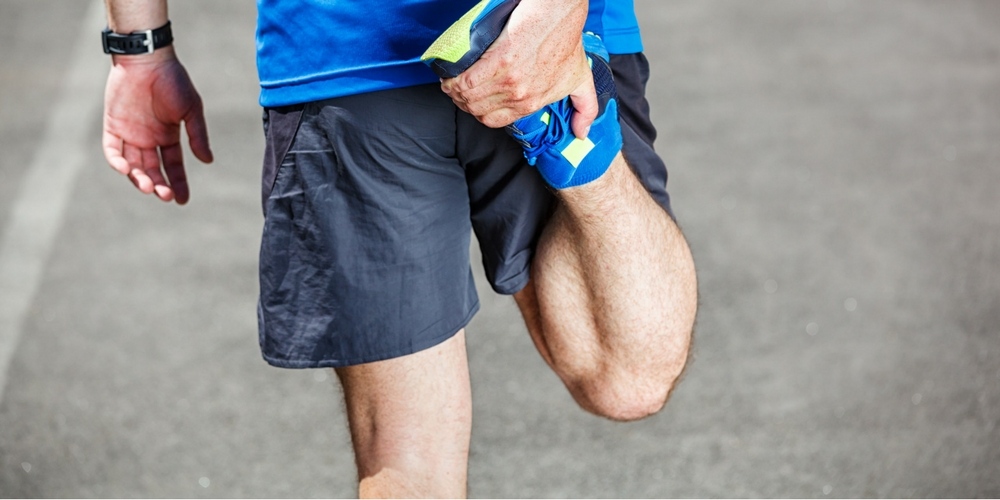Former Setanta student, ex athlete and current Strength & Conditioning Coach with Sports Surgery Clinic, Colin Griffin, discusses the keys elements of preparing for a marathon. He outlines the significance of strength training, what to eat and the importance of enjoying the journey.
Preparing for a Marathon
Is this you?
You are on your morning commute asking yourself the following questions:
- Have I done enough training?
- Have I tapered properly?
- What will I eat before the race?
If so, you are probably one of 20,000 fellow participants competing in Dublin Marathon on Sunday who are having the same thoughts. It is human nature to question yourself and have doubts, but it’s how you control them is what matters.
I too will be lining up for this year’s Dublin Marathon having previously competed in 2015. At the time it was a new challenge for me having spent a previous international athletics career as a race walker.
Doing less better
Unless you are a full-time athlete, you have to make the most of limited time and compromise with other demands on your lifestyle and energy. Those demands for most people will include work, study and family life. You also need time to sleep, relax and recover.
Since retiring from being a full time athlete where I could solely dedicate over 30 hours per week to training, I am working full-time and doing a PhD. I have found that a much more productive approach is doing less better. This involves two to three important running sessions and two strength training sessions in the week. Anything else in addition to that is a short easy run, if I have time.
Don’t neglect strength training

13 January 2010; Race walker Colin Griffin lifts weights during an Athletics Ireland Winter Training Camp ahead of the 2010 athletics season. Monte Gordo, Algarve, Portugal. Picture credit: Brendan Moran / SPORTSFILE
Training for a marathon, before you even reach the start line, places a big demand on the body. It is vital that the body is structurally sound before you put it through a big stress. Our working and commuting lives involves more sitting than our ancestors which has reduced our capacity for high training demands particularly of we try to increase training at a greater rate than our bodies can adapt.
I work as an S&C coach in the Sports Surgery Clinic in Dublin. The majority of my workload involves rehabilitating athletes of all levels from various injuries. At this time of year I deal with a lot of marathon runners who have developed an injury at the most critical phase of their preparation.
Aside from reducing injury risk, strength training has other health benefits including improving muscle, bone and metabolic health that which is relevant for runners of middle age and older. It is a useful training tool to support your running. If this is something that you haven’t included in your program previously, it may be worth considering for the next marathon you prepare for.
Many runners will sacrifice their strength training to get those longer runs done. A less risky approach is to have more consistency over 15-20 mile weekly runs in addition to regular strength training and some tempo runs or interval training at slightly faster than marathon race pace. These are the key ingredients to my average training week.
The week of the race
There are plenty of articles and blogs written about tapering for a race particularly about timing and percentage reduction in training volume. There is no one size fits all approach. It is very much an individual preference and a specific taper may not be that important. If you have a recovery week every few weeks throughout your training and have not over-trained, and have reduced the distances of your runs in the final two weeks; that should be enough. It is more important to go into the race feeling physically and mentally sharp.
What to eat
It isn’t necessary to worry too much about carbo-loading. If you have reduced your training volume and even maintained your regular calorie intake in the final 2 days before the race, your muscles will have stored enough energy. A slight increase in portion size of carbohydrate content in your meals will be enough. What you eat the evening before, morning of and consume during the race should be what you are accustomed to. Try to keep your routine as normal as possible to minimise any additional stress on the body.
Enjoy the journey
You have taken on one of the biggest sporting challenges and invested in your health and well-being. On the week of the race it is good to appreciate the journey you have undertaken and the how fitter and stronger you have become. Dublin Marathon is a great occasion with thousands lining the streets to cheer you on. My advice is to soak it up and enjoy it. Be prepared in your mind to have to work hard at certain points in the race.
Enjoy the journey and reward yourself after for your efforts. Then see what lessons can be learned for the next one!


Hi Colin
What strength work would you give to a marathon runner training along with 60 mile weeks.